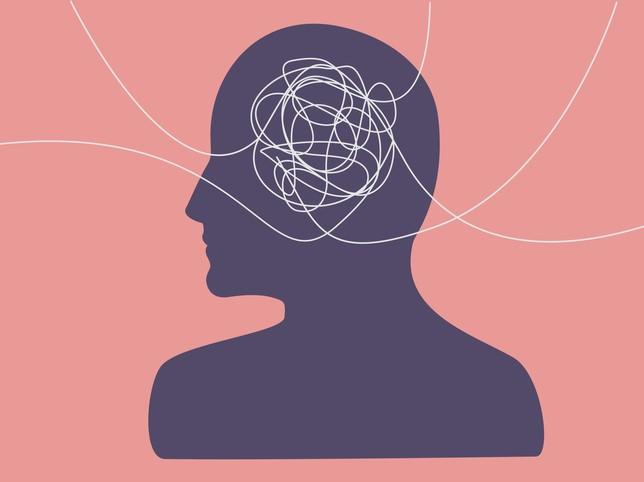Mental health is a serious issue for Generation Z. It can affect emotional, psychological and social well-being that can be triggered by many factors, including social media, global events and academic pressure. Students often find that stressful periods such as final exams can exacerbate tension and anxiety. The pressure to perform well and fear of failure can harm academic performance and overall classroom experience.
- Three ways to support the post-pandemic mental health of Generation Z
- Building kindness into an institutional culture
- Managing empathy fatigue as a teacher
Educators play a crucial role in supporting students. When a student is experiencing a mental health crisis, key considerations and strategies are needed for immediate support and long-term assistance. Awareness about mental health has grown compared with previous generations. Creating a supportive and non-judgemental environment is essential.
Immediate support
1. Listen and show empathy
Active listening: Speak gently in a calm, reassuring voice. Allow students to express their feelings without interruption. Nod and maintain eye contact to acknowledge their emotions and validate their experiences, giving verbal cues like “I am here for you”.
Non-judgemental attitude: Avoid judgement and try not to offer unsolicited advice. Focus on understanding students’ feelings and experiences – be supportive and compassionate. Encourage students to be kind to themselves and acknowledge their strengths in managing the situation.
2. Ensure safety
Assess the situation: Prioritise the safety of the student and others. Ensure the student is in a safe environment and remove any potentially dangerous objects from the vicinity. Determine if the student is in immediate danger to themselves or others. If there are signs of self-harm or suicidal thoughts, take immediate intervention. If it is safe to do so, stay with the student until help arrives.
Emergency services: If the situation is severe, do not hesitate to contact campus security or emergency services. Clarify that there is a mental health crisis and provide as much detail as possible about the situation. Know the protocols for your institution and act accordingly.
3. Provide immediate resources
Crisis helplines: Gently encourage student to consider seeking professional support. Provide the student with contact information for crisis helplines or text lines when they need someone to talk to if they are in immediate distress.
Counselling services: If the student is overwhelmed and unable to cope, refer the student to campus counselling services or professionals, or help them get to the nearest emergency room.
4. Encourage grounding techniques
Grounding exercises: Teach simple grounding techniques, such as deep breathing, listening to calming music, counting objects in the room or focusing on sensory experiences by touching something with a distinct texture. If possible, encourage gentle stretches, wiggling fingers and splashing cold water to shift focus. These can help the student feel more present and calmer.
Long-term support
1. Follow up
Check-in: Long-term support can begin by following up with student after the incident to assess their condition. This can be done through email, a phone call or a private conversation – whichever the student and educator are comfortable with.
Continued support: The educator may continuously offer the student emotional and mental health support, and be a point of contact if they need further assistance with regards to academic or personal matters.
Extensions and accommodations: Offer deadline extensions on assessments, should a student require more time because of their mental health challenges.
Alternative arrangements: Flag up the new arrangement at the earliest opportunity, to give sufficient time for the students to prepare, revise and complete their tasks or assessments. Giving them another opportunity to improve their grades, such as replacement exams, may boost their self-esteem and motivate them to perform well.
3. Promote mental health resources
Workshops and seminars: Educators, and the student psychiatrist or counsellor, should encourage the students to attend mental health workshops or seminars offered by the school or institutions. These programmes can educate them about mental health struggles and how best to handle them.
4. Encourage self-care and well-being
Healthy habits: Remind the student to maintain healthy habits including regular exercise, a balanced diet and sufficient sleep.
Hobbies and interests: Encourage student to engage in hobbies or interests that bring joy and relaxation. Involving their friends in their hobbies, and socialising while enjoying an activity they love, is a proven way to release stress.
5. Create a supportive community
Peer support groups: Facilitate the creation of a support system, where students can share their experiences with their peers and support each other.
6. Work with mental health professionals
Collaboration: Collaborate with campus counsellors, psychologists and other mental health professionals to provide comprehensive support for students. Educators may assist the counsellors in giving a brief but informative talk about mental health awareness to the students during the first few minutes of lectures.
Confidentiality: Maintain confidentiality and respect students’ privacy when working with mental health professionals.
Self-care for educators
Supporting students facing mental health challenges can be emotionally taxing. Educators should take into account their physical and mental health, practise self-care and seek support whenever needed. Set healthy boundaries, take breaks and seek professional guidance should you feel overwhelmed.
By following these steps, educators can play an important role in supporting students through their mental health challenges, providing both immediate and long-term assistance to help them navigate difficult times.
Norlin Nosbi, Nurul Azhani Yunus, Mazian Mohammad and Abdul Rahim Othman are part of the mechanical engineering department at Universiti Teknologi Petronas.
If you’d like advice and insight from academics and university staff delivered direct to your inbox each week, sign up for the Campus newsletter.




comment